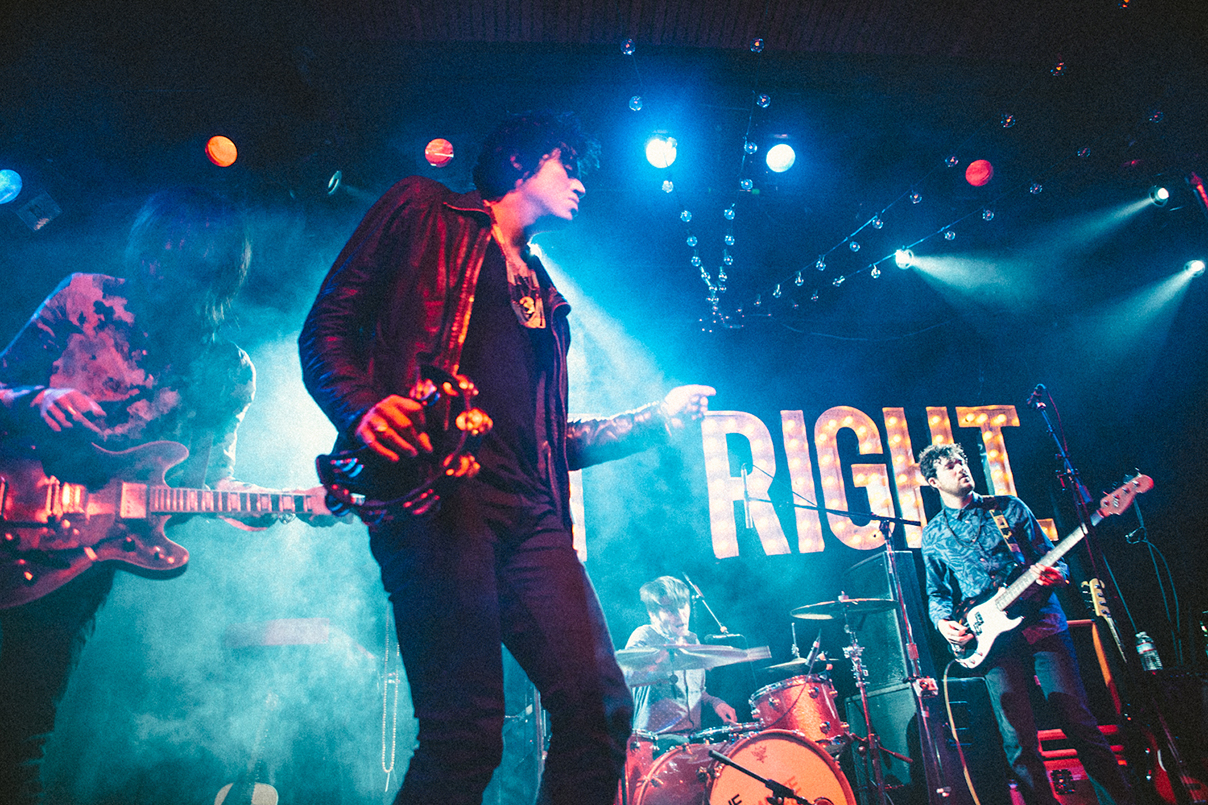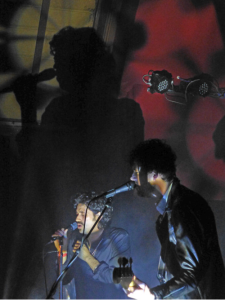Interview: Hard work paying off for The Soft White Sixties

The Soft White Sixties, courtesy.
BERKELEY — Octavio Genera, frontman and vocalist for San Francisco soul rock quartet The Soft White Sixties, sits in a plush chair in front of a futuristic dashboard of mixers and video monitors worthy of clandestine agency’s control center.
The Soft White Sixties, No, The She’s, Cannons and Clouds
7 p.m., Feb. 28
The Chapel
Tickets: $13.
Genera and his bandmates — guitarist-keyboardist Aaron Eisenberg, bassist Ryan Noble and drummer Joey Bustos — are at Ninth Street Opus studio in Berkeley, putting the finishing touches on the deluxe version of their debut album, Get Right.
Although they’ve been selling the album at shows since June, it’s getting a proper release a week after their Noise Pop performance at the Chapel on Feb. 28. Producer Jim Greer (who produced Foster the People’s platinum-selling debut, Torches, among others) answers the door and then goes back to fiddling with switches while the band takes a break to chat. Noble pulls out a loaf of holiday bread his mother made and shares with everyone in the room.
Last year was an exciting one for the band, which got off the ground in 2009 and has been playing with largely the same lineup since 2010. But last year, they played to a sold-out Independent for an album release show, saw their biggest audience when performing on the main stage at the Outside Lands Music and Arts Festival, and finally achieved a dream by playing the Fillmore, as an opener for The Hives.
“They made a poster for the night, and we got to be on it – us and The Hives,” Eisenberg says. “They brought it out and showed it to us — framed, ready for the wall. I remember Joey was next to me, and (he) had this calm sense of being stoked.”
Noble piggybacks off of Eisenberg’s thoughts: “A lot of our favorite artists have played there, so to even be in the conversation with these other artists that we look up to and to get the feeling that we might be approaching their realm a little bit is a really awesome and inspiring feeling.”
A couple of years ago, the Sacramento Bee compared Genera’s performance style to The Hives’ Howlin’ Pele Almqvist (along with a young Mick Jagger), but back then, Genera didn’t know who they were and didn’t get the comparison.
“The similarity probably just had to do with the energy of the show,” Noble says. “They’re both very energetic front people. Octavio (is) more down to earth and gritty, whereas Pele is a little more wild and ‘yeehaw!’ More party. A little more ‘yeaaah!’”
“Same book, different chapters,” Genera interjects.
The Sixties blend soul, R&B, classic rock grooves, extra fuzz, blues and a dash of psych-rock into a seamless package. Genera dubbed the concoction “working class soul” even before he had a definition for what that meant.
“To me, working class means it’s not pompous, it’s not pretentious,” Genera says. “It’s just honest and very straightforward….Like Hank Williams (and other) lyricists that I think are really great, but I think they’re really great in their simplicity.”
Noble points out that everything the band has accomplished to this point – recording and releasing a record, a practice space, their van – has been through their hard work, not a loan from a record label.
All four still hold day jobs. Bustos, who’s got the most visible tattoos of anyone in the band, works for Gap corporate in San Francisco (he says this sheepishly, but then admits he does it well). Genera is an educator, working at local schools. Noble works at a high-end audio business – “I deal with really esoteric, expensive turntables and record needles, two-channel stereo, and very expensive and nerdy stuff that sounds really, really obscenely good.”
And Eisenberg, who has dabbled in film since making skateboarding videos as a teen, and studied film at San Francisco State, works at a Berkeley production company. He directed the band’s debut video for the single “City Lights.” He borrowed some gear from work, lit some props on fire, and had his band mates throw powder at each other in slow motion.
The band hopes 2014 is the year they can quit their jobs and concentrate on the Sixties full-time.
“I think it’s a matter of being busy instead of a monetary thing,” Eisenberg says. “It’s not like we need a million bucks to quit our jobs. We just need a full schedule.
“I mean, yeah, we’ll take a million bucks.”
This year marks the second time the Sixties will play Noise Pop, and the band is as excited as ever to play a local show. They know how the festival has propelled the likes of the White Stripes and Black Keys, and helped launch plenty of local bands.
“It has become a San Francisco staple,” Noble says. “There’s always somebody interesting and somebody new to see. Hopefully Noise Pop can be an opportunity for people who haven’t heard us.”
Follow Roman Gokhman at Twitter.com/RomiTheWriter.

